Rheumatism and a desire to put the frighteners up some noisy partygoers played a big part in establishing one of the Bay of Plenty's largest family honey businesses.
Mossop's Honey celebrates 70 years this autumn. Its roots started on the other side of the Kaimai Range, migrated across to the Bay, and now have hives spread throughout the central North Island and East Coast.
Back in 1947 Neil Mossop's father Ron, who worked at Waharoa dairy factory, had heard about the positive effect on rheumatism that bee stings could have thanks to the venom's ability to ease inflammation of joints.
Ron was well ahead of his time, with researchers only today starting to learn more about how the venom increases anti-inflammatory hormones in the body.
'Dad decided to get a few hives and subject himself to stings while he looked after them, and sure enough he found the stings did help him with his joints,” says Neil.
The cheesemaker and boiler operator-turned-backyard beekeeper soon learned bee hives could also have a positive effect keeping other unwelcome ailments away.
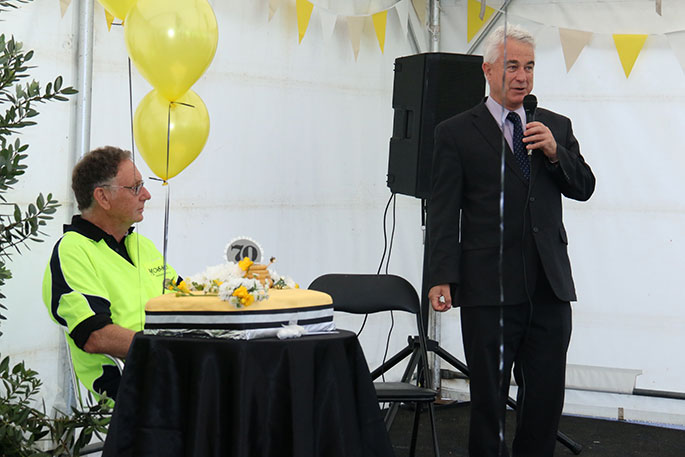
Tauranga Mayor Greg Brownless speaking at the event.
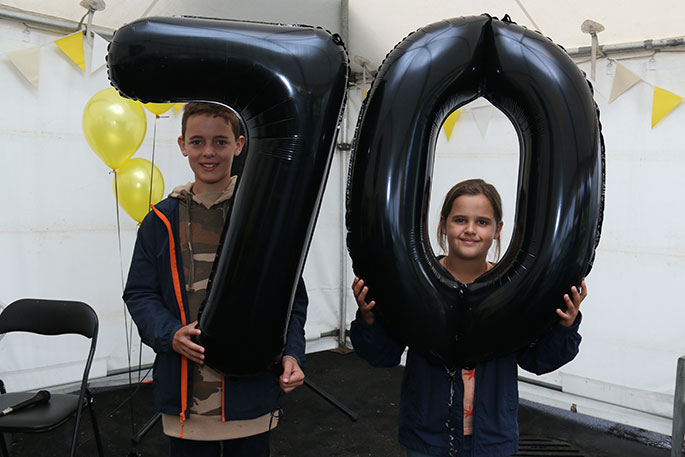
Zane, 12, and Ava, 8, Jurisich at the event.
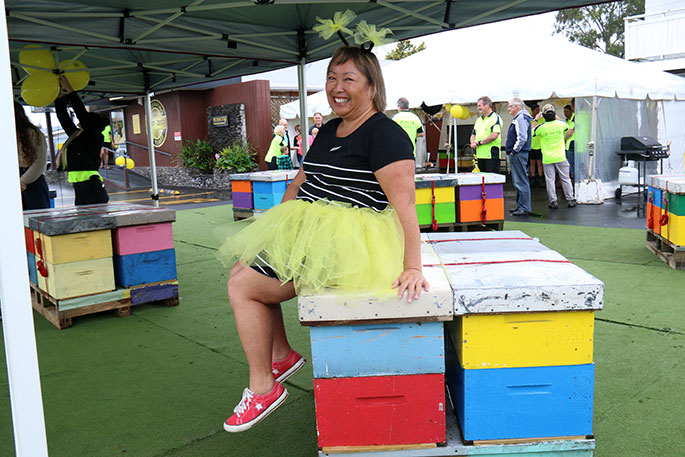
Zenda Johns dressed up for the occasion.
800 HIVES
'It was the days of the 6 o'clock swill, when people would drink as much as they could and then pile out of the pub, continuing to drink at home. We had a bunch of rowdy people who would always congregate at the end of our street once the pubs shut. Dad asked a beekeeper if he could put a few hives there – it soon dealt to the noisy parties!”
Ron's passion for beekeeping grew and he leapt at the opportunity in the early-1950s to buy 800 hives off a Te Aroha beekeeper.
'In those days that was a lot of hives, enough to be a full-time business and he bought the lot for 22 shillings and sixpence.” Today a single hive can be worth up to $1000.
Most honey collected then was predominately pasture-based, but Ron's passion for variety and innovation shone through when he tracked down the source of a sweet tasting, light-coloured honey that had appeared in his hives.
'They followed the bees right up into the top of the Kaimai Range to find the source, which turned out to be Tawari. It's less common today, but the Tawari tree had a flower that yielded this beautiful butterscotch-type honey.”
HONEY SUPPLY
During those early years Ron worked hard building relationships with landowners and farmers through the Waikato, running hives in return for a generous supply of honey.
In today's increasingly competitive honey industry it is a tradition Neil and Wendy continue, along with making hive rental payments that provides valuable income for farmers on some of the tough hill country around the East Coast and central North Island.
Ron had also been retailing Mossop's Honey around shops in the region, and in 1961 the family opened their store on the site they continue to occupy today at Tauriko.
Ever innovative, Neil, like his father Ron, was also the first beekeeper in New Zealand to commercially provide hives for kiwifruit pollination, moving eight or nine hives at a time around on his Ford V8 truck. He was a pioneer working with the families who planted the first kiwifruit in the Bay of Plenty.
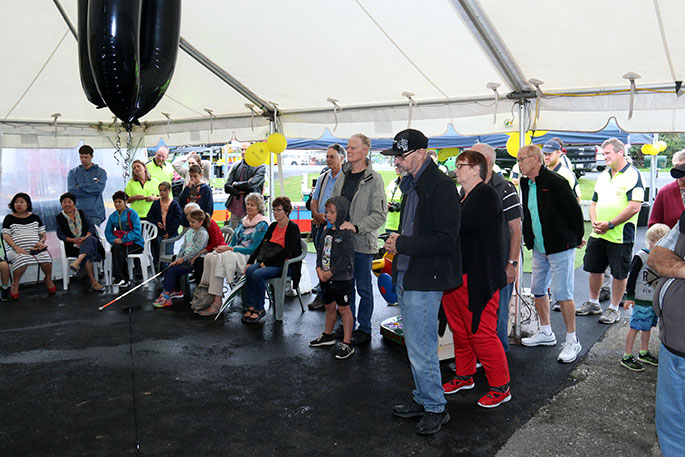
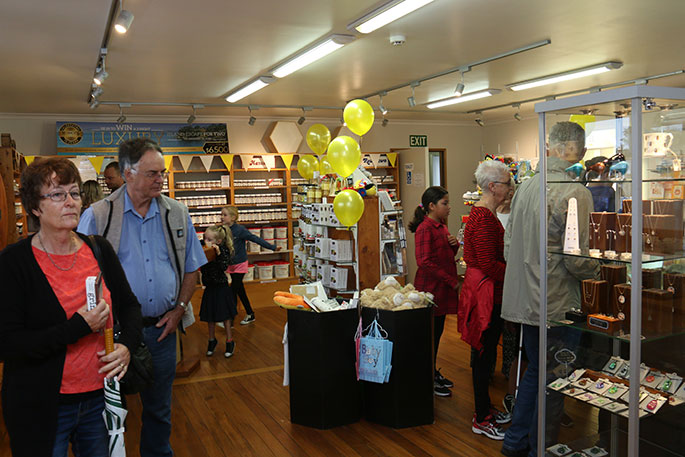
KIWIFRUIT POLLINATION
'Today, we cart 400-450 hives at a time on a 44 tonne truck, travelling and returning in a day to places Dad would have stayed overnight at, given how rough the roads and routes were back then,” says Neil.
These days kiwifruit pollination is still an important part of the business, but not as significant given honey's increasing value.
Those honey sales expanded well in the 1980s, after Neil and Wendy bought the business from Ron in 1981. This also included their first exports.
'Hong Kong was relatively easy to export to in those days and today we export to 10 countries with Asia and the United States really strong market for us,” says Wendy.
Their pioneering ventures continued as the Mossop's closely followed early research on Manuka honey done by the late Professor Peter Molan at Waikato University.
'Until then field honey and Tawari were the main honey types; Manuka was really a bit of an unknown, seen as a bit different,” says Neil.
A group of beekeepers, however, saw Manuka's potential – forming the Unique Manuka Factor association, which Mossops was part of.
ANTIBACTERIAL POWER
Meanwhile, Wendy witnessed the antibacterial power of Manuka when she saw how it healed an ulcer her mother had struggled to have healed conventionally.
'I saw how the skin around the ulcer was softened and that was the seed of an idea to develop a skincare range using Manuka.”
But it was not until 2007 when she met a cosmetologist capable of developing a genuinely natural range of products that she saw the birth of the company's ‘Natruȇl' range.
'The 1980s really became the decade where Manuka was discovered and better understood,” she says.
Wendy and Neil recount the many challenges the business has faced during the years, from the Whakatane earthquake, to the vine disease Psa-V in kiwifruit – but perhaps the biggest one was learning varroa had infected New Zealand beehives in April 2000.
'At one stage all beekeepers in the North Island were going to have to burn their hives, but fortunately that did not eventuate.
'Meantime, we have learned to manage it, although it has come at significant extra cost,” says Wendy. The family also dealt with the loss of their iconic store to arson attack in 2008, doubly painful as it had been the Mossop family home. Rebuilding it with a fresh new image has played a big role in giving the Mossop brand a new look and created even stronger interest in the busy state highway shop.
THIRD GENERATION
Today Wendy and Neil are proud to see their own family taking over as the third generation, with sons Ryan and Duane employed, and youngest son Joshua working alongside the business with his own bee operation, Beelieve Enterprises. Their daughter Charity has also been closely involved in the business during the years.
Wendy says their focus on providing a consistently high quality product, with minimal stirring or treatment, has lent Mossop's honey a different texture to most commercial honeys and earned them many dedicated customers in New Zealand and around the world.
Meanwhile, the innovative couple are looking forward to the forthcoming launch of another honey-based product for winter, a specially developed cough elixir that promises to help ease the usual winter colds thanks to Manuka's now well-known healing properties.
'We feel we've been very blessed to work where we are, in the business we are in and to have our family close and involved, with plenty of challenges and opportunities for all of us to be involved in,” says Wendy.
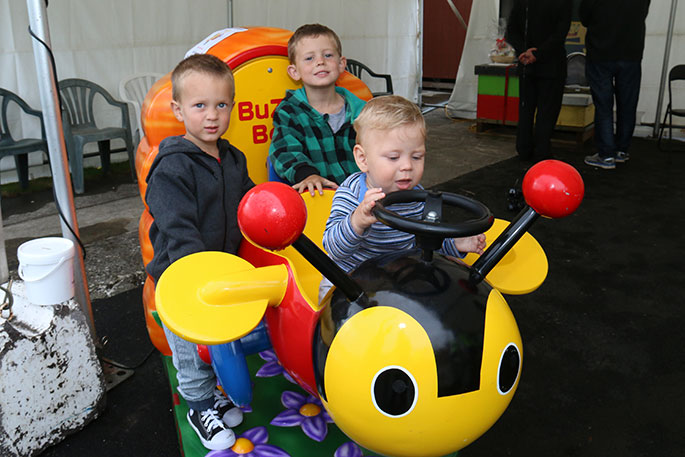
Max, 3, Asher, 9 months, and Jackson, 6, Mossop.
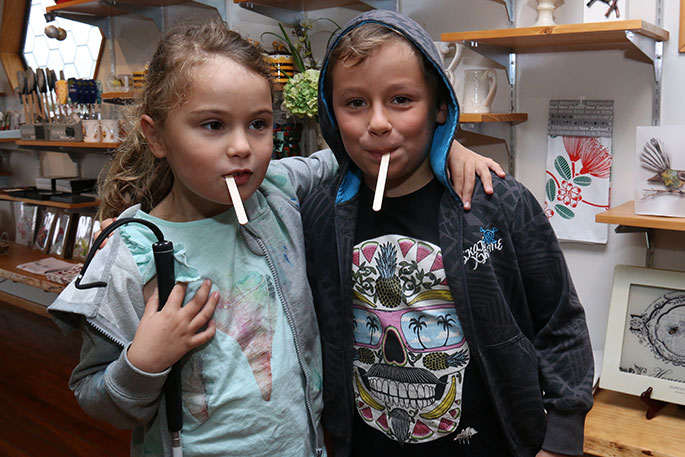
Imogen, 7, and Tom, 9, trying out the honey.
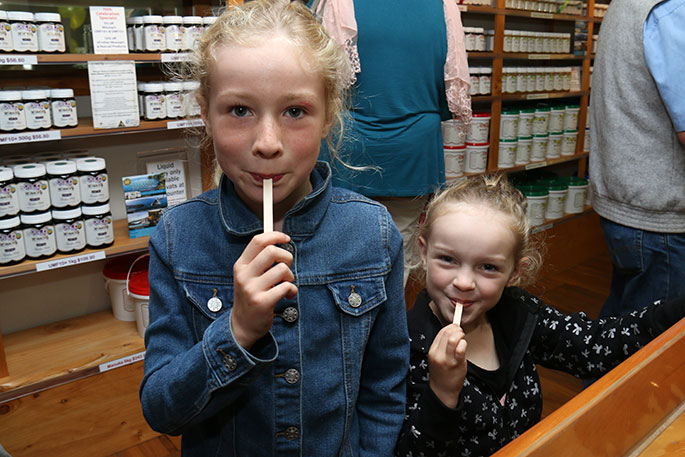
Myah, 8, and Chloe, 5, Collins.
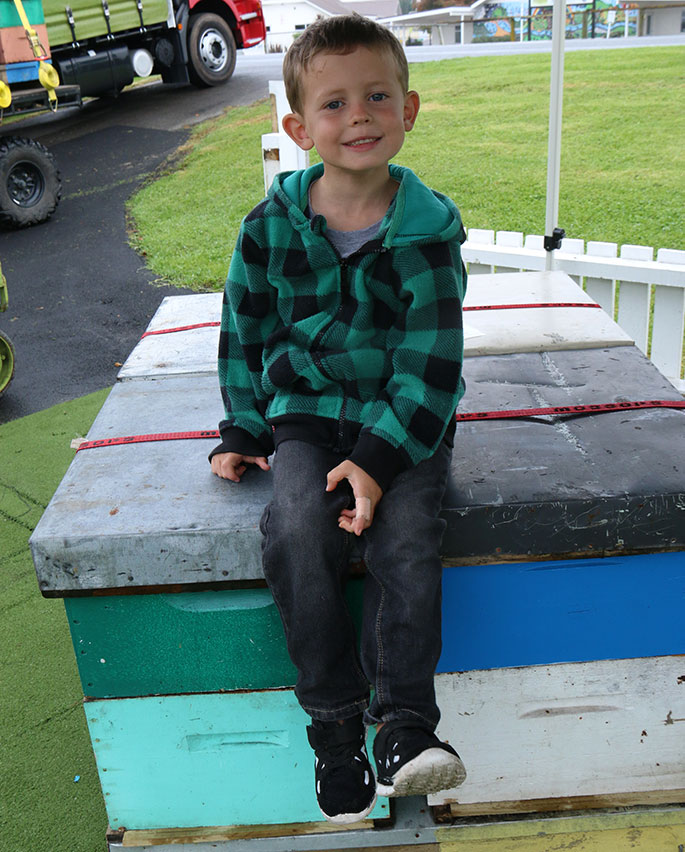
Jackson Mossop, 6.

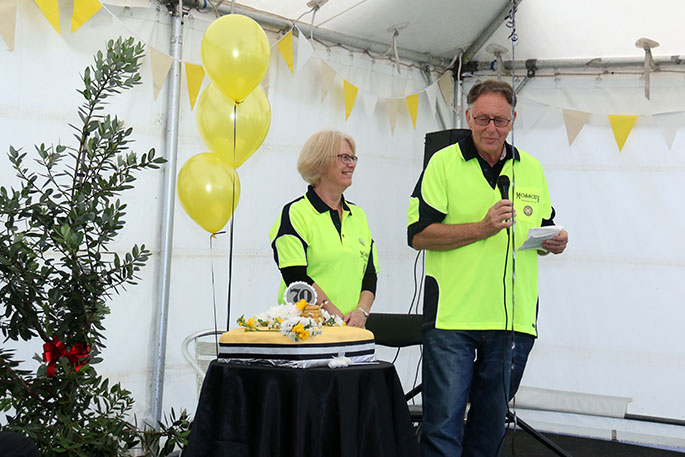

0 comments
Leave a Comment
You must be logged in to make a comment.